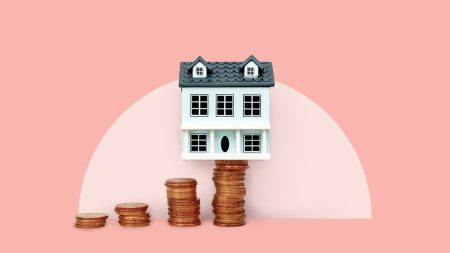Key takeaways
- Applying for a credit card triggers a hard pull, which dings your credit score whether you’re approved for the card or not.
- New credit applications are only 10 percent of your credit score, so a hard pull may only decrease your score by a few points, although the effect varies based on your credit profile.
- The credit score drop is only temporary, and often reverts after a few months. Credit scoring models formally disregard new credit applications entirely after a year or two.
Applying for a credit card or credit line increase carries the risk of a small, temporary credit score drop, although the benefits of a new card and increased available credit can easily offset the drop.
Still, a small dip in your credit score has the potential to affect your approval odds if you’re on the cusp of the card’s recommended credit score. Considering Bankrate’s 2024 Credit Denial Survey showed that half of Americans who applied for loans and other financial products had been denied since the Fed interest rate hikes began in 2022, it’s important to strengthen your approval odds and hedge your bets where you can.
Credit approvals may loosen if rates go lower, but it’s important to understand and factor in how applying for a credit card affects your credit profile in the meantime.
How applying for a credit card can hurt your score
There are two types of credit report inquiries: “soft” and “hard” inquiries. A soft inquiry only occurs when you request a copy of your own credit report or when an issuer sends a prequalified card offer. These soft credit pulls don’t affect your credit score because they’re information-only requests — you’re not asking for new or additional credit.
On the other hand, hard inquiries make more of an impact on your score since they are solely used for obtaining new credit, including credit cards or a credit line increase. Taking on new credit signals more potential risk for lenders and typically results in a temporary credit score dip.
This only lasts for a few months on average thanks to other credit scoring factors. New credit applications only stay on your credit report for two years at most anyway, although some credit scoring models like FICO may not consider them after the first 12 months.
How much does applying for credit affect your score?
How much of an impact a new credit application has on your credit score depends on a few factors. New credit applications influence 10 percent of your FICO credit score (11 percent if you use the VantageScore 4.0 model, or just 5 percent with VantageScore 3.0).
Regardless of the credit scoring model, new credit is one of the smallest variables in your credit score. This means you may only see your credit score drop by a few points, although you may notice a bigger difference if you have a relatively young credit profile.
Still, the additional credit you could receive if you’re approved could more than offset this temporary ding to your score. After all, credit utilization weighs in as one of the biggest credit score factors and accounts for 30 percent of your FICO Score.
Does applying for multiple credit cards affect your score?
It can be easy to assume that applying for different credit cards at the same time not only gives you better approval odds but also a variety of choices when approved. However, the temporary, negative impact of new credit on your score amplifies if you submit several applications without much time in between. With every application, your score will go down, making it harder for later applications to be approved. With every denial, the likelihood of issuers seeing you as a credit risk goes up.
With that in mind, try to wait till your credit score rebounds before applying for another credit card or credit line increase. Choose the right card for you at the moment, one that gives you the best chances of approval for your credit score with a reasonable annual fee, and keep an eye out for your next card while your score recovers.
Bankrate insight
It’s also important to consider credit card issuer restrictions before you apply for another credit card. For example, Chase will not approve you if you already opened five or more credit cards from any issuer within the past 24 months (known as the “Chase 5/24 rule”).
How applying for a credit card can help your score
Although your credit score may take a dip after applying for a new card, the impact will likely be minimal. This is because you will have simultaneously increased your available credit, which could more than make up for any losses from the hard inquiry. This result is especially pronounced if you have a limited credit history, also known as a “thin credit file.”
Considering how big of a factor available credit plays into your credit score (especially if you have a thin file), it can be easier to maintain a good credit utilization ratio and significantly improve your credit score as a result. Just make sure to pay on time and in full as often as possible to see the full benefit to your credit score.
Bankrate Insight
If you already have an active installment loan and you’re applying for your first credit card (or vice versa), opening a card provides a credit mix, which can improve your credit since it accounts for 10 percent of your FICO Score.
Does being denied a credit card hurt your score?
If, on the other hand, your credit card application is denied, the temporary credit score drop from the hard pull won’t be overcome by an increase in available credit. Being denied for a credit card itself doesn’t hurt your credit score, but the temporary ding to your score from the hard credit inquiry applies whether you’re approved or not.
There are no guarantees that you’ll be approved even if you apply through a prequalified offer, so keep that in mind if you have a limited credit history or your current credit score straddles the card’s suggested score.
How to increase your odds of being approved
Since approval is never guaranteed, there are actions you can take to increase your chances of being approved when you’re in the market for a new credit card.
- Check a card’s recommended credit score. Issuers typically mention a credit score it recommends to have a solid chance of being approved. Many popular cards suggest a good to excellent credit score (a FICO Score of 670 or higher), although there are plenty of cards available if you have a lower score. Bankrate’s credit card reviews list the recommended credit scores for their respective cards, although you can also use our Approval Odds feature to gauge your chances.
- See if you prequalify. While there’s no guarantee for approval, being prequalified (or better yet, preapproved) gives you a reasonable vote of confidence that your application may be approved. Some issuers may send preapproved offers in the mail or let you submit basic personal information to check if you prequalify on their website. Third-party options may also be able to provide prequalified offers, including Bankrate’s CardMatch tool.
- Establish a history of responsible credit usage. If you already have a credit card, the best way to increase your approval odds for your next card is to consistently pay off your existing card on time and in full, and keep your credit utilization ratio as low as possible. This can boost your credit score and show lenders that you use credit responsibly. If you’re applying for your first credit card, you can still build your credit through options like becoming an authorized user, paying off a loan or reporting rent and bill payments.
The bottom line
Ultimately, applying for a new rewards or starter credit card will put a temporary dent in your credit score, but usually only by a few points. You might notice a slightly bigger effect on your score if you have a young credit profile, which is why it’s important to space out your credit card applications and carefully weigh your approval odds before applying.
The credit score drop usually reverts after a few months in many cases, and the new credit added to your profile can more than make up for the temporary dip with a long-term boost to your credit score if you manage your balance responsibly.
Frequently asked questions
Why we ask for feedback
Your feedback helps us improve our content and services. It takes less than a minute to
complete.
Your responses are anonymous and will only be used for improving our website.
Help us improve our content
Read the full article here












